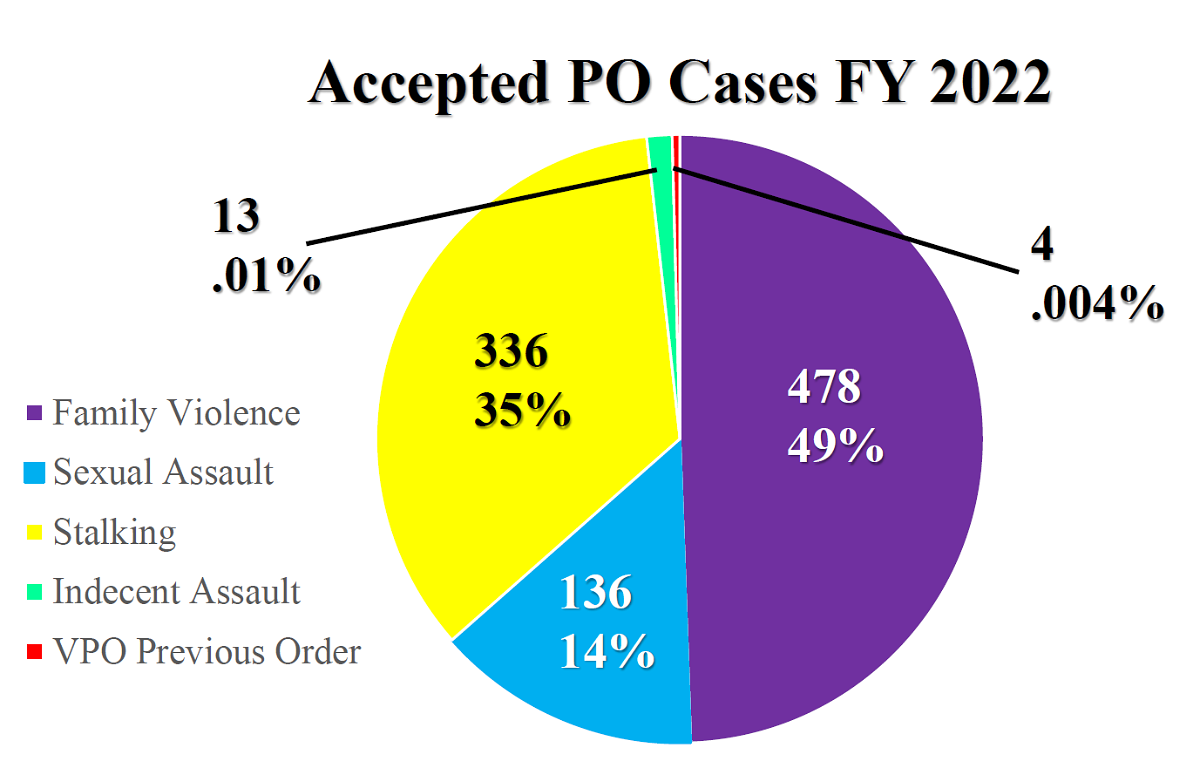Concerning, or a game changer? Attorneys weigh in on new laws that regulate protective orders
EL PASO, Texas (KVIA) -- Several new state laws that went into effect Sept. 1 of this year will have a direct impact on victims of domestic violence and the people who target them, which ABC-7 chose to highlight as October is Domestic Violence Awareness Month.
Senate Bill 578 allows people who are applying for a protective order to keep their county of residence private. This would help a domestic violence victim stay hidden from their batterer if they moved counties, especially to a lesser-populated area.
Rep. Joe Moody, (D) El Paso Dist. 78, authored a bill that had a similar version in the Texas Senate. SB 1717 affects the prosecution of stalking behavior, allowing testimony into the court record in order to add context to how behavior by the stalker affects the victim.
HB 1432 has reduced the scrutiny that a judge has to use to issue a protective order. Previously, the applicant had to both prove family violence happened in the past and that it could happen in the future.
Now, the second question is not asked, meaning a judge only has to ask whether domestic violence occurred before issuing a protective order.
ABC-7 approached both a private attorney and the County Attorney's Office to find out how this change will affect people in El Paso who are seeking protective orders.
Aaron Setliff, the trial chief of the County Attorney's Protective Order Unit, called it "a game changer."
"It is sometimes hard for prosecutors to show the future, right, and so we would sometimes lose in our efforts to get a protective order because we were unable to show violence was likely to happen in the future, particularly around dating violence," Setliff said. "For instance, if someone was dating, then broken up and they don't live near each other, how would I show they would come back into contact?"
Elena Grasheim, a partner with Wyatt Underwood, said she found the new law "concerning."
"It can be used as a retaliatory measure," Grasheim said, then set up a scenario. "'I'm going to come back in six months and file a protective order against you, and say that we got into this argument where you pushed me six months ago.'
"Before, that was easy to defend because it was unlikely to occur in the future, because they were not together anymore and there was no reason for this," Grasheim said. "At this point in time, with the new law, the judge's hands would almost be tied because if that push is proven, that family violence, the protective order would be granted."
According to the County Attorney's Office, El Paso County courts issued nearly a thousand protective orders during the last fiscal year. More than a third pertained to stalking and nearly half were due to family violence.

Grasheim acknowledged El Paso's family violence problem is large and widespread. But she pointed out, protective orders are a civil measure meant to prevent, not punish, domestic violence.
"I think it's going to be absolutely more difficult to defend, especially when I think there are times that a protective order is filed in order to gain an advantage in a custody litigation matter," she said. "If the court finds that family violence has occurred, that can be used in a custody case when the court is determining conservatorship."
When asked if he felt that people will argue that the change in the law will infringe on the rights of those who are on the receiving end of the protective orders, Setliff paused before continuing. "So, I readily admit, I have a bias on this. I come from this work. I believe in protective orders. I believe in helping to make intimate partners safe from their batterers. I do. So, I readily full disclosure on that," he said. "I think it's super important. You have to weigh the freedom that people are talking about, with someone's need to get safe."
According to the Texas Council on Family Violence, the number of people who sought a shelter to escape an abusive relationship went up 25 percent in 2022.
During the 2023 Texas Legislative Session, legislators also funded family violence centers across the state, including in El Paso.
Setliff said the Center Against Sexual and Family Violence (CASFV) will receive a portion of the $88 million allocated to centers statewide over two years.
The overall amount is up about $10 million from the last legislative session.
CASFV provides shelter, counseling, job readiness, safety-oriented approaches to violence, prevention classes and behavior intervention plans for offenders.
